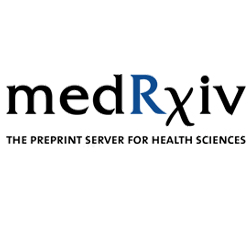
Na Cai
@caina89
Followers
2K
Following
9K
Media
102
Statuses
2K
Assistant Prof at @ETH_BSSE @ETH_en studying genetics of psychiatric disorders. I’m now also on https://t.co/m523o0v3rL
Basel, Switzerland
Joined January 2012
A comprehensive genome analysis suggests that women have more genetic risk variants for major depressive disorder than do men, with stronger links to metabolic traits https://t.co/xjrravlIsh
nature.com
Nature - A comprehensive genome analysis suggests that women have more genetic risk variants for major depressive disorder than do men, with stronger links to metabolic traits.
5
38
149
Good morning #ASHG25! I am sadly not attending this year, but my postdoc @diyazheng_ is there presenting a poster on our latest EHR work. Say hi to him at 14.30pm today Oct 15 at Poster 9156W! We are also looking for quantgen postdocs: if interested please DM or email me!
0
0
16
#RECOMB2026 will be in Thessaloniki, Greece on May 26-29, 2026. Satellites on May 24-25. Save the date! Το συνέδριο #RECOMB2026 θα πραγματοποιηθεί στη Θεσσαλονίκη, στις 26-29 Μαΐου 2026. Οι δορυφορικές εκδηλώσεις θα διεξαχθούν στις 24-25 Μαΐου 2026. Σημειώστε την ημερομηνία!
0
12
28
🚨 New preprint out! We reconstructed parental haplotypes in >440k individuals (UK & Estonian biobanks) to estimate assortative mating directly in the parental generation. This reveals intensified assortment in recent generations. 🔗 https://t.co/wnag6TiWWo
5
52
127
We are excited to share GPN-Star, a cost-effective, biologically grounded genomic language modeling framework that achieves state-of-the-art performance across a wide range of variant effect prediction tasks relevant to human genetics. https://t.co/FTm3byYp67 (1/n)
17
160
514
Description of the KOMOGEN study, recruiting 10,000 women with recurrent depression in S. Korea, is now out: https://t.co/8qsPOwD3ez
onlinelibrary.wiley.com
A core challenge in the genetic analysis of major depressive disorder (MDD) is how to recruit large numbers of stringently diagnosed cases with sufficient information to explore the interplay...
0
3
2
Latest genomic AI models report near-perfect prediction of pathogenic variants (e.g. AUROC>0.97 for Evo2). We ran extensive independent evals and found these figures are true, but very misleading. A breakdown of our new preprint: 🧵
9
118
485
Our preprint on the challenges of benchmarking Structural Variants (SVs) is out in BioRxiv
biorxiv.org
Structural variants (SVs) are medium and large-scale genomic alterations that shape phenotypic diversity and disease risk. Numerous methods have been proposed for discovering SVs, however their...
3
9
21
🌎👩🔬 For 15+ years biology has accumulated petabytes (million gigabytes) of🧬DNA sequencing data🧬 from the far reaches of our planet.🦠🍄🌵 Logan now democratizes efficient access to the world’s most comprehensive genetics dataset. Free and open. https://t.co/dDBtAjfdYL
5
151
376
I wrote about how genetic risk works in the context of embryo selection and how people often think about it all wrong. A short 🧵:
9
38
219
New preprint. We show that a wide class of outcome transformations and endogenous treatment effects induce sign-consistent gene-environment interaction (GxE) effects. https://t.co/YwjjiQ2kL0 1/4
biorxiv.org
Gene-environment interaction ( G × E ) studies hold promise for identifying genetic loci mediating the effects of environmental risk on disease. However, interpretation of G × E effects is often...
1
3
21
Monotone convex transformations of an additive phenotype induce sign-consistent GxE--new preprint from @sadowskimich, Noah Zaitlen and Richard Border
New preprint. We show that a wide class of outcome transformations and endogenous treatment effects induce sign-consistent gene-environment interaction (GxE) effects. https://t.co/YwjjiQ2kL0 1/4
0
3
8
Thousands of genetic loci that increase the risk for psychiatric disease have been found, but no one knows whether disease arises from a random selection of risk alleles. @caina89 shows that risk alleles occur in sets, opening the way to finding disease subtypes
1
1
7
Many apologies for the typo - title is “Genetic risk effects on psychiatric disorders act in sets”, see preprint:
medrxiv.org
Genetic studies of psychiatric disorders have typically assumed that all genetic effects contribute additively to disease liability. However, it is likely that psychiatric disorders have unrecognized...
1
0
6
Link to GitHub page:
github.com
Code used to implement coordinated epistasis on psychiatric disorders - caina89/psychCE
0
0
5
This work would not have been possible if not for the persistent efforts of @JolienRietkerk @andywdahl @jonathan_flint1 @AndrewSchork and many others, as well as the data from participants in @uk_biobank and IPSYCH. We hope it will be informative to the field. 12/n
1
0
5
Though our investigations and findings are centered on psychiatric disorders, the implications are generalizable to all complex traits and diseases, especially those with heterogeneous architectures and unclear diagnostic boundaries. 11/n
1
1
7
Overall, our work provides a novel metric, the CE test, for informing diagnostic boundaries. Our results show that genetic effects on psych disorders act in sets, and calls for a re-evaluation of current approaches and assumptions. 10/n
1
0
8
Finally, we find that common genetic effects across all five psych disorders, expected to capture common etiological axes among them, forms a cross-order set most plausibly explained by common confounders external to each disorder’s etiology. 9/n
1
0
12

















